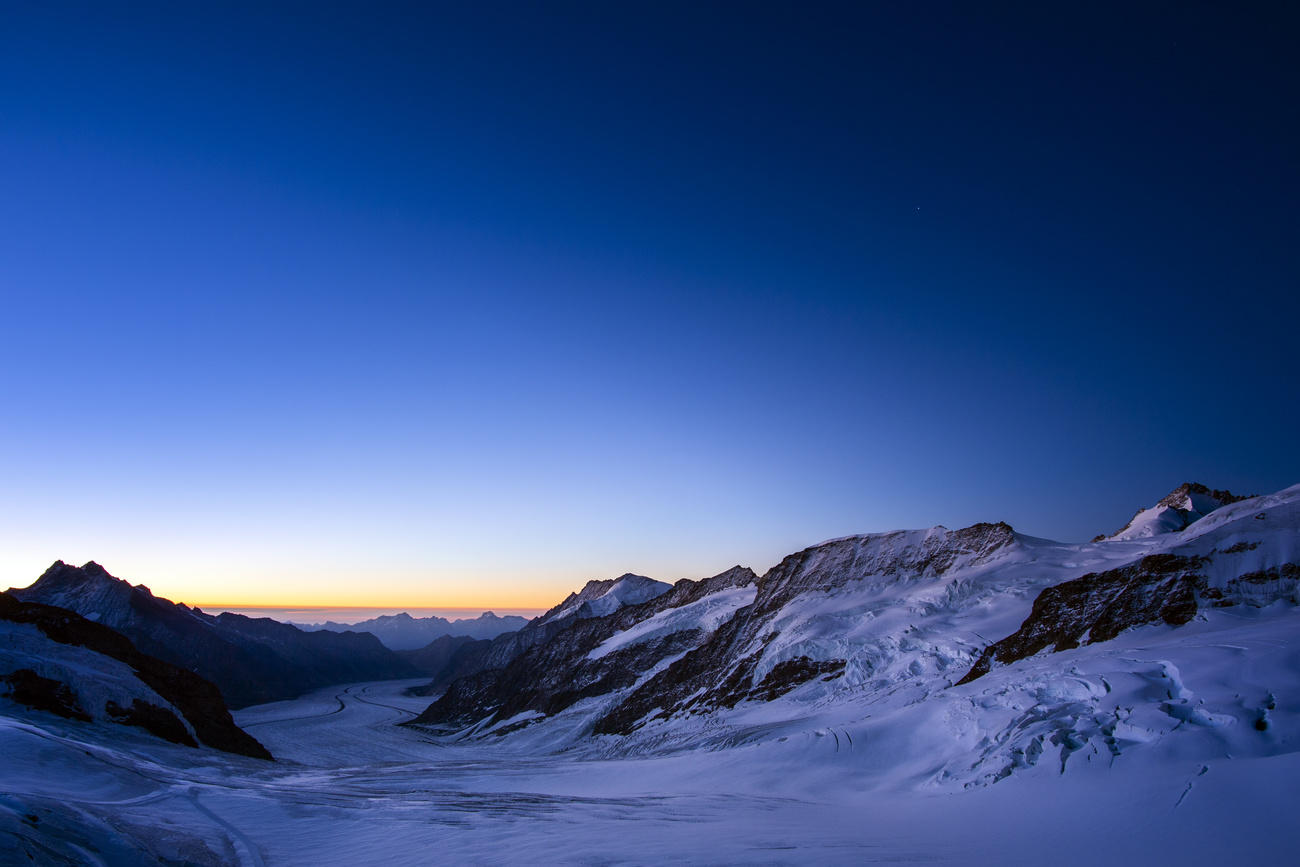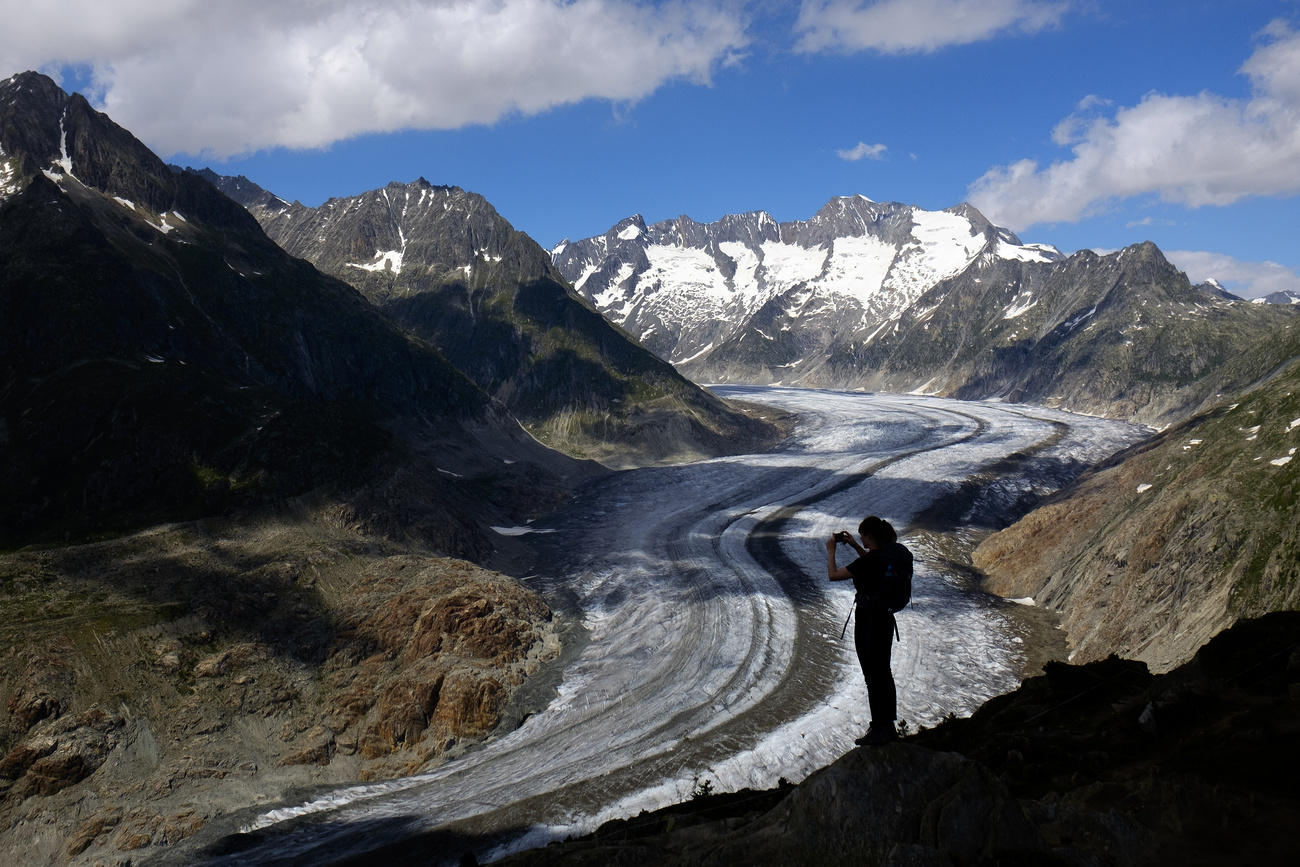
Largest Alpine glacier could lose half of volume by century’s end

Swiss researchers have used 3D modelling to calculate how severely global warming is impacting ice cover on the Aletsch Glacier. In the worst-case scenario, by the end of the century only a couple patches of ice will remain.
On Wednesday, researchers at the federal technology institute ETH Zurich published results of a studyExternal link investigating how much of the Aletsch Glacier will be visible by the end of the century. The results show that anywhere from 60% to only a few patches of ice could remain based on different global warming scenarios.
The scientists used a 3D glacier model that allows them to map the dynamics of an individual glacier in detail and applied this to three different regional global warming scenarios. Each scenario uses a different starting concentration of CO2 in the atmosphere resulting in different degrees of global warming.
Large glaciers are very slow to react to changes in climate, which means that even in the best-case scenario, where global warming is limited to 2 degrees Celsius, the predictions are grim. “Even in this case, we have to assume that the Aletsch Glacier will keep retreating until the end of the century,” one of the study authors Guillaume Jouvet explains.
According to the study, this would lead ice volume and length of the glacier to decrease by more than half of what they are today. The Aletsch Glacier’s tongue has already receded by about one kilometre since the year 2000, and scientists predict this trend will continue over the coming years.
In the worst-case scenario where Switzerland’s climate warms to 4 to 8 degrees hotter than the 1960–1990 reference period, the scientists find that only a couple of measly patches of ice will remain by 2100. Jouvet says that the Concordia Place, which is directly below Jungfraujoch and still covered in about 800 metres of ice, will be completely ice-free.
Even in a theoretical scenario in which the climate remains the same as it has for the past 30 years, the glacier’s ice volume will still decrease by more than a third by the end of the century.
The Great Aletsch is the largest glacier in the Alps, and is a major tourism draw in the Swiss region of Upper Valais, second only to the Matterhorn.

More
Glaciers and the changing landscape in the Alps

In compliance with the JTI standards
More: SWI swissinfo.ch certified by the Journalism Trust Initiative




























You can find an overview of ongoing debates with our journalists here . Please join us!
If you want to start a conversation about a topic raised in this article or want to report factual errors, email us at english@swissinfo.ch.